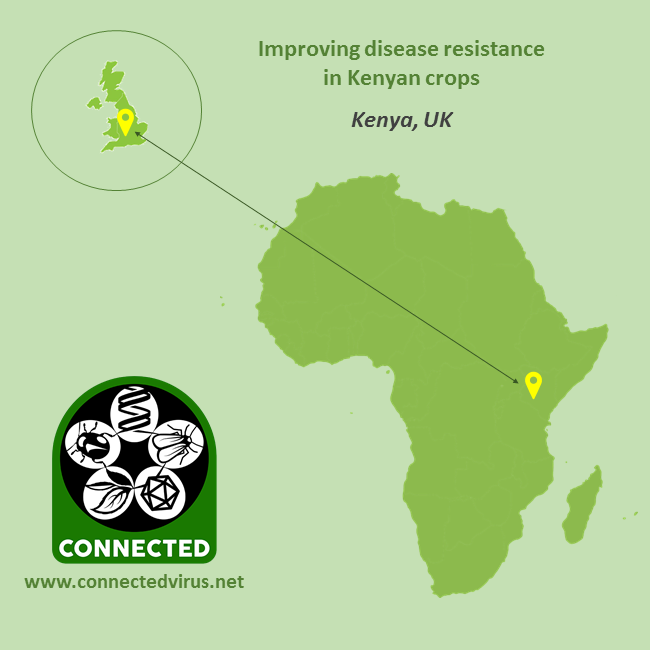This article is one in a series outlining the 20 research projects which are funded by CONNECTED in its pump-prime funding programme. To read all the available articles use this link.
 Improving disease resistance in Kenyan crops
Improving disease resistance in Kenyan crops
A project seeking to improve the resistance to disease of Kenya’s cabbage and kale crops
Cabbage is the third most important and commonly consumed crop in Kenya, yet Turnip mosaic virus (TuMV) is known to limit its cultivation. It can reduce weight yields of cabbage (Brassica oleracea) by up to 50% and result in 25% of plants not being marketable. TuMV also commonly affects the production of kale.
A potentially durable disease resistance trait has been identified in the distantly related Chinese cabbage (Brassica rapa). This project explores the movement of this trait from Chinese cabbage to Kenyan cabbage and kale varieties, using conventional plant breeding methods, seeking to provide durable disease resistance.
Lowering the cost of cabbage and kale production, by reducing yield losses, will result in cheaper retail prices, helping to fight malnutrition.
Countries
- Kenya
- UK
International research collaboration
- Kenya Agricultural and Livestock Research Organization
- Centre for Agriculture and Biosciences International, Kenya
- Syngenta Seeds BV, Netherlands
- NIAB EMR, UK
- University of Warwick, UK
People
- Charlotte Nellist (Principal Investigator)
- Miriam J Otipa
- John A Walsh
- Bill H Briggs
- Joseph M K Mulema
UPDATE … You can now read an article which provides an update on this project. It is published by CABI, outlines more about the thinking behind the project , and explains some of the work that has so far been undertaken. You can read the article here
Network members can find further details about those involved in the project by logging in to this site as a member, and using the Member Directory.
